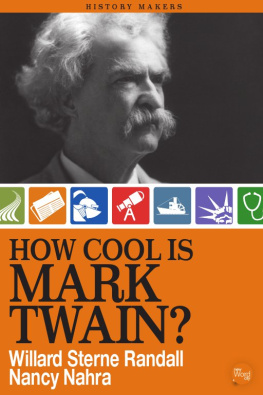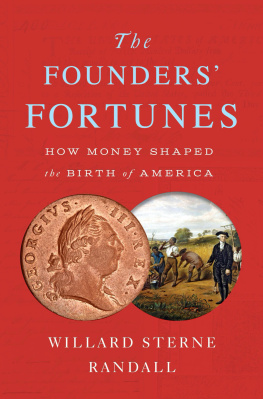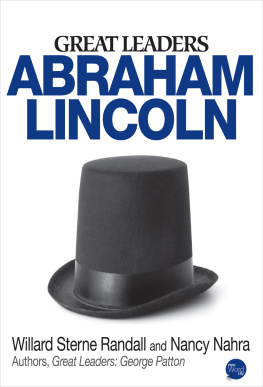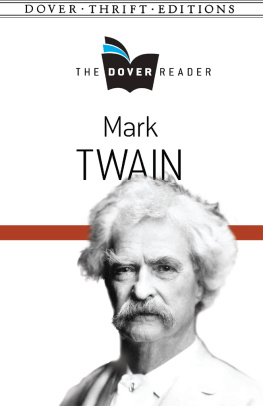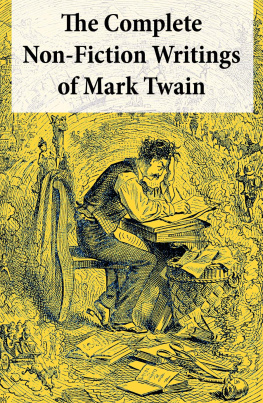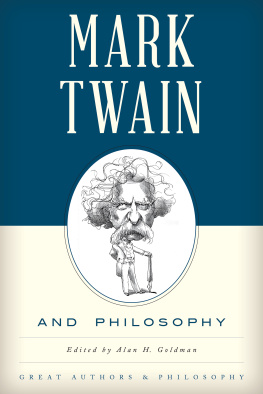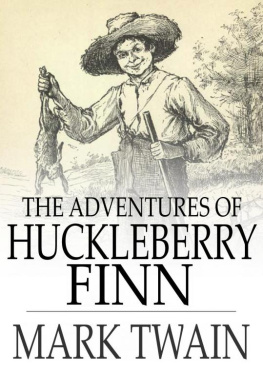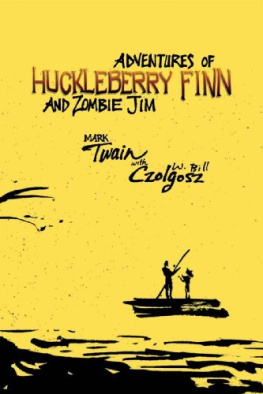families to exult in victory. Not until 1877, twelve years
after the war ended, did General Ulysses S. Grant meet
cities. In this time
and South.

Samuel Langhorne Clemens, better known as Mark
Twain, recognized that the two emerging cultures in
the United States were actually East and West. His ex
perience, especially in the varied jobs he had held as a
young man, enabled him to understand that, in many
ways, the relation of East to West corresponded to an
older difference known to many Americans, that of the
Old World from the New.
Born on November 30, 1835, in Florida,
Missouri, Samuel Clemens came into the
world the same month that Halleys Comet
streaked across the sky.
When Clemens was four, he moved with his family
to Hannibal, Missouri. Eight years later, his father,
John Marshall Clemens, died, creating hardship for
his wife and children and turning young Sams for
mal schooling into a sometime thing. Although his
father, a lawyer, came from a well-regarded family and
distinguished himself in community service, he never
succeeded as a businessman or a speculator.
After setting up and running his own store, he was full
of plans and hope for the future. John Clemens could
claim credit for establishing the library in Hannibal.

Then, when he became judge for Monroe County, the
town seemed on the brink of exciting changes. Sams
father headed more than one committee for big, ambi
tious local projects. Inspired by his enthusiasm, the
committees he led aimed high. One such endeavor
involved altering the flow of the nearby Salt River to
help navigation. Another was to develop railroads lo
cally. But his grand ideas came to nothing.
In the end, he left behind little of value. The 70,000
acres in Fentress County, Tennessee, that he be
queathed them turned into more of a burden than an
asset, when dreams of discovering a fortune in miner
als failed to pan out. As a result, the family lacked
ready money and the Clemens boys had to take what
jobs they could to help out.

Attempting to keep up with his schooling
as much as his part-time jobs allowed, Sam
somehow found time to read books for
pleasure. His favorites included stories of
knights and medieval adventures, the kind Sir Walter
Scott was then making popular. Young Clemens, how
ever, broadened his idea of heroes, going beyond the up
holders of monarchy to devour books about pirates, too.
The same year that Sam lost his father he acquired a
legacy of odd experiences that settled deep in his imag
ination, only to surface as he aged and staying with
him well into manhood. At least one such adventure
greatly resembled the romantic stories he liked to read.
Sams father had died in March, the cruel time of year
when pneumonia often claimed victims
who had survived winter. The Clemens
family kept going, thanks to the efforts
of all its members. Orion, the oldest son
(the family pronounced his name with the accent
on the first syllable), worked in St. Louis, while his
widowed mother took in paying mealtime guests and
Sam accepted any odd job local business owners gave
him, whether it was the grocer, the blacksmith, or the
bookstore owner.

Late in that summer of 1847, while Sam was swimming
with other youngsters in the Mississippi, he watched
as a boy he knew drowned. Just days later, fishing with
friends, they had made a gruesome discovery - the
corpse of an escaped slave. Horrified, they learned that
the older brother of Tom Blankenship, a friend of Cle
mens, was not so surprised as the others. The brother
had known where the fleeing slave was hiding and had
been bringing food to the runaway.

Nearly thirty years later in 1876, when Mark Twain
started to work on Huckleberry Finn, that haunting
memory surfaced. Readers of that book would meet
Jim, the escaped slave, but not until 1884 when Twain
started to publish excerpts of the book in Century
Magazine .
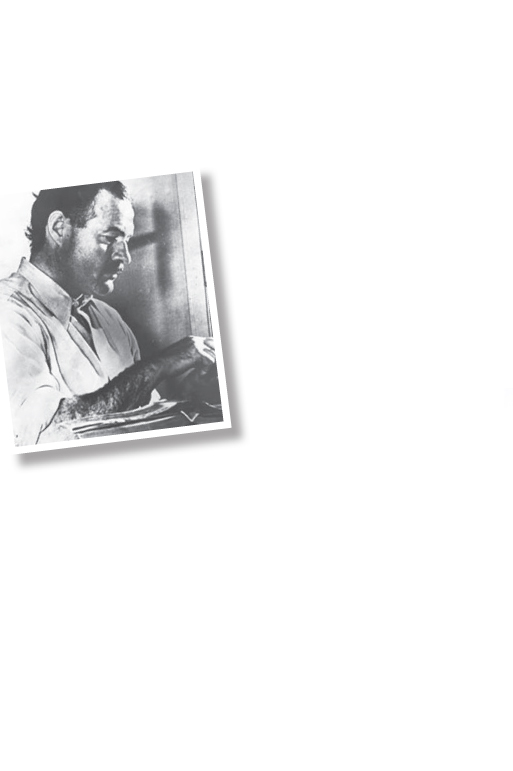
In 1847, a boy without a father, the only work Sam
could find was the kind that he didnt consider worth
while, because it didnt seem to be enriching him. Yet
he was acquiring invaluable experience that would
later enrich his own writing,
and, as it turned out, the
work of American writers
who came after him. Ernest
Hemingway spoke for most
of his contemporaries com
ing after Twain when he
said, All modern American
literature comes from
one book by Mark Twain
called Huckleberry Finn.
As part of a fatherless family, Clemens was learning
how it felt to be an outsider - not like boys in other
families. And long before he ever left home, he had
become adept at spotting outsiders, a position on the
edge of things that was beginning to feel familiar. Not
quite fitting in with other boys in town or with other
groups either, Clemens was learning to enjoy watching
the people who did fit. The young, alert, and hurting
outsider would keep at it, refining his way of watching

and his knack for thinking about what he saw in a way
that no insider could.
Not by intention, Clemens repeatedly found work that
put him in close proximity to writing in various forms.
Working first as a printer on a newspaper in Hannibal,
where his brother was editor, he learned about setting
type. In almost no time, he also discovered that he
needed more work than what his brother Orion could
offer. Clemens expected his brother to pay him, as
promised, but he never did see the weekly $3.50 he
was counting on. Instead, his observations and en
counters turned out to be worth far more.

